The Ukrainian military has launched a counter-offensive in the Kharkov region.
There are many hot takes about this.
We are not going to provide you with a Military Analysis. Instead, we will offer a brief overview of how we arrived at the current state of affairs—and ask the simplest of questions: Can we please stop with the malarkey and have an honest dialogue about what has occurred over the past six months? Please? It’s time.
The Kiev “feint”
Remember when thousands of Russian troops semi-surrounded Kiev and Zelensky was supposed to flee for his life (maybe he did, temporarily, to Poland. History’s Mysteries)? Oh, we remember.
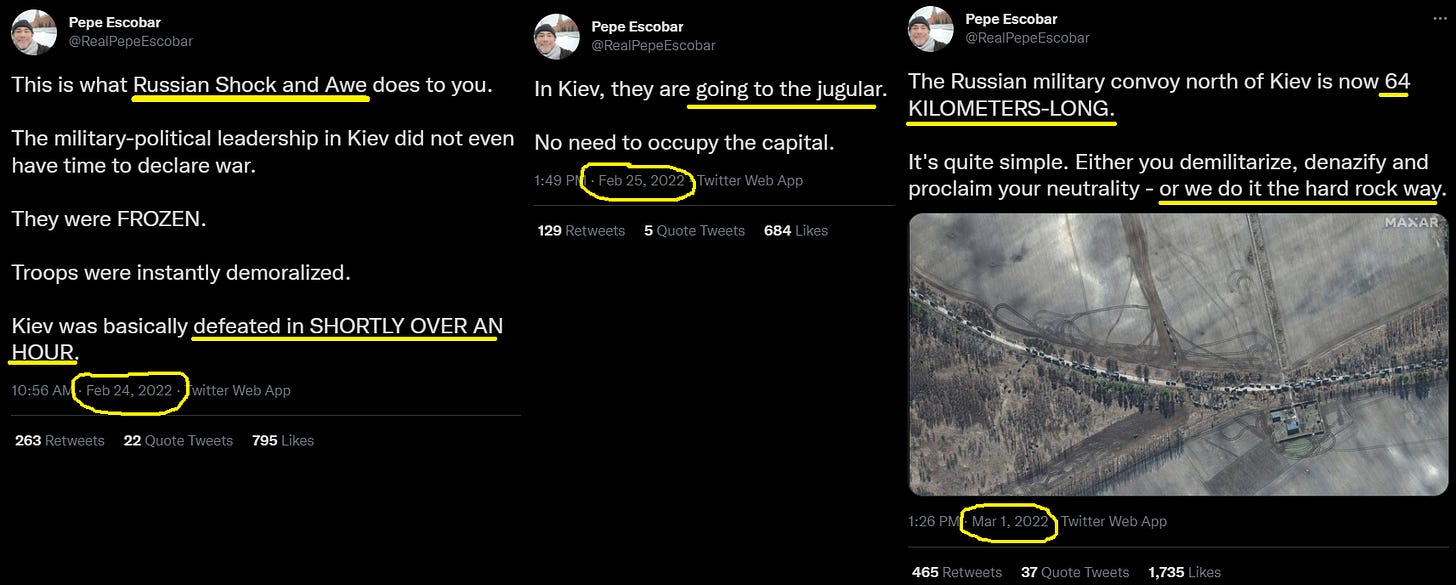
Go back to mid-March—all the usual suspects were still predicting an imminent assault on Kiev. There’s a simple explanation for this: Russia was still signaling it had ambitious plans for Kiev and neighboring regions.

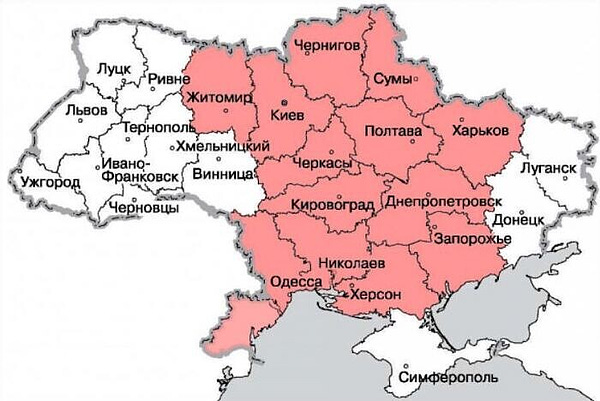
But by late March the narrative had changed in a very radical way.
On March 25, Russia’s ministry of defense claimed that operations in Kiev, Kharkov, Chernigov, Sumy, and Nikolaev were designed to “tie down [Ukrainian] forces” and prevent them from “strengthening their grouping in the Donbass.”
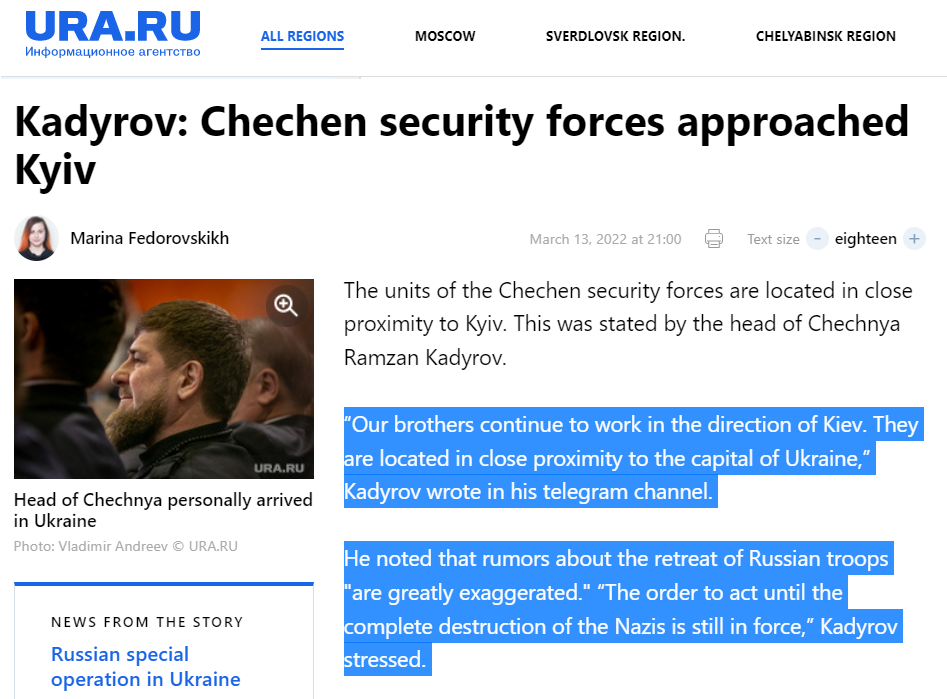
A few days later, the Kremlin described the Russian withdrawal from these areas as a gesture of goodwill aimed at encouraging peace talks.
Seemingly overnight, Russia’s short-lived excursions into Kiev and the surrounding regions were rebranded as a “feint” that would allow for the swift liberation of Donetsk and Lugansk. (Current status: incomplete.)
A new narrative was born: with Phase I (“the feint”) a resounding success, the Russian military could now focus its attention on the Donbass. We were told, day after day, that Ukrainian forces in the east were going to be boiled alive, Ramen noodle-style, in a giant cauldron. Once the Ukrainians were encircled, Kiev would be forced to either surrender or crawl to the negotiating table.


It was all over, according to the liveliest intellects of our time. Gonzalo Lira proclaimed that Antony Blinken and Lloyd Austin met with Zelensky in late April to inform Kiev that the United States would not be sending heavy weapons to Ukraine.
“It was a kiss-off. It was the signal to the Zelensky regime that US/NATO will not supply heavy weapons or planes, and will not get into this war. It's over,” Lira tweeted on April 27.
Scott Ritter had a slightly different take: Russia would destroy any NATO weaponry sent to Ukraine before it could reach the front lines.
It wasn’t until mid-May that Ritter conceded “Russia has shown itself unable or unwilling to [intercept weapons shipments]—as a result—the Ukrainians are having a meaningful impact on the battlefield.”
Mariupol was officially cleared of Azov fighters at the end of May (some of whom were later released as part of a prisoner exchange), but the long-anticipated encirclement of Ukrainian forces in Donbass never materialized. Reinforcements and NATO-supplied weapons continued to flow across the Dnieper.
No biggie.
In a tweet commemorating the first three months of fighting, Lira mused that the AFU wouldn’t be able to hold out for another 90 days. The Ukrainian military, according to Lira, was now a spent force entirely reliant on reservists.

But after taking Mariupol, Russia’s advances slowed to a snail’s pace. Gains in East Ukraine came to a screeching halt after the AFU was expelled from Lugansk in early July.
“The special operation is going according to plan”
Suddenly, a new narrative was born: the longer the war went on, the better it was for Russia. Time was on Russia’s side—even as Ukraine was “rebuilding significant capability” (source: Scott Ritter).
But this wasn’t always the prevailing wisdom. For educational purposes, let’s briefly review what Very Serious Pundits were saying in the first weeks of the conflict.
On March 9, the Saker published an article under the headline: “The opinion of a professional about the special operation in Ukraine (MUST READ!)”. The analysis, written by a “military professional” named Alexander Dubrovsky, repeatedly stressed that speed was of critical importance to achieve Russia’s goals in Ukraine.
“The special operation does not stop, there will be no more delays. Every day of delay categorically harms us, unplanned diplomatic, political, economic and military problems appear. Only speed and onslaught, until in the West they begin to assess the situation with a cool head,” Dubrovsky wrote.
The article continued: “The final turning point will come after the cleansing of Kharkov, blocking or taking Odessa.”
A new directive had been issued by the Russian MOD, Dubrovsky revealed: the gloves were coming off and “hypothetical harm to civilians” would no longer take precedent over military objectives:
I want to reassure you, for the twelfth day our guys are operating in a different operational and tactical reality, losses will rapidly decrease. If earlier there was a strict order not to cause even hypothetical harm to civilians, civilian objects… today it has been modified. In one sentence: “not to the detriment of the personnel of the units.” As a military man, I am completely satisfied: now the humanitarian sensitivities are over – real work will go on.
This was the “must-read” that received a glowing preface from Andrei, the Saker’s chief curator.
Fast-forward five months. On August 10, the Saker penned a commentary explaining why he was no longer posting maps of the military situation in Ukraine.
“Unlike the first month or two of the SMO, there are very few changes worth showing on a map,” Andrei wrote, adding that the barely moving battle lines showed Russia was taking special care to avoid civilian casualties.
Okay, great—but what happened to the speedy “cleansing” (yikes) of Kharkov and Odessa? And how is it that “every day of delay” was bad news for Russia in March, but suddenly a non-issue in August?
On August 24, Shoigu explained the lack of progress in East Ukraine.
“[E]verything is done to avoid casualties among civilians. Of course, this slows down the pace of the offensive, but we are doing it consciously. The special operation is going according to plan,” Russia’s defense minister said.
Less than three weeks later, Russian forces abandoned their positions in Kharkov region, endangering the lives of countless civilians who were promised that “Russia is here forever.”

Ukraine’s counter-offensive: “Meaningless”
Which brings us to the precarious present.
Marko Marjanović has an excellent write-up of the incredible events that have transpired over the past week:
In just 4 days the Russians lost a vast area—everything beyond the Oskil river gone. Just like that.
Positions that took months for Russia to capture and expand were gone in an instant. (The whole of March to take the city itself, followed by battles to expand the bridgehead over Seversky Donets to its south.)
Particularly around Izyum, the Russian military had fought bloody close-quarter battles to take and expand positions beyond the Oskil and Seversky Donetsk and was now giving it all back in a rout.
Russia’s MOD explained that the retreating troops were being “regrouped” in order to “boost efforts in the Donetsk region” (does that sound familiar?).

Meanwhile, Lira was tweetin’ up a schizoid-storm:




Ritter also weighed in. But before we dive into his most recent comments, let’s review what he was saying back in May:
Ukraine is rebuilding significant capability … Unless Russia is willing to jump across the Dnieper River and head into western Ukraine where it can eliminate the strategic depth that the Ukrainians are being gifted by the Russians, then demilitarization of Ukraine is not going to take place …
The fact that these advanced howitzers [provided by NATO] are operating on the front lines right now, shows there’s something wrong with the Russian methodology. And, unless they alter that methodology, I think we’re in for a very long summer.
Ritter basically predicted the Ukrainian counter-offensive. After sounding the alarm months ago, he is now urging Russia to change its “methodology” in Ukraine, right?
No. Everything is under control, Ritter declared on September 10. The Ukrainian military has launched a “significant but meaningless counter-attack” that, worst-case scenario, will simply delay Russia’s imminent victory by a few months:
It’s not the end of the world. It just means Russia went from winning every day, literally every day it was: Russia winning. Russia wins again, Russia wins again. It was starting to get boring … Russia’s winning, winning big time. […]
What’s the worst thing that’s going to happen from this? NATO is going to send Ukraine more weapons? Wow, I think that’s already happening.
In May, Ukraine was “rebuilding significant capability” and had successfully deployed NATO-supplied heavy weapons, indicating there was “something wrong” with the “Russian methodology.”
In September, these same NATO weapons were used to launch a counter-offensive that over a period of four days pushed Russian troops to the other side of the Oskil river.


Ritter’s hot take: Meaningless.
“I’ve never seen such a pathetic performance by people who claim to be seasoned military analysts,” Ritter said of internet pundits who are now expressing concern about the same flawed “Russian methodology” that Ritter called out in May.
Sure; okay.
Is it meaningless that Ukrainians in Kharkov who supported Russia are now fleeing for their lives? Is it “pathetic” to point out that Russia’s withdrawal means that scores of civilians—probably many of whom were completely neutral and just wanted to quietly live their lives—are going to get their doors kicked down by the SBU? Is this how Russia “wins”?



As our blog-friend Rolo Slavskiy wrote:
The SBU is going to be sent in now to do what they do best - slit throats and then demand confessions. Yes, in that order. These people are monsters. We have no idea how many people have simply been disappeared in Ukraine. I complain about the FSB, but the SBU just do whatever they want with no restraint at all. Torture, mutilations and mass-killings are standard SBU operating procedure. The Ukrainians, ironically enough, are fighting like Bolsheviks - with no concern for any norms or conventions or anything resembling humanity.
This regrettable episode reminds us of an article published in April by Strana.ua—home to Ukraine’s “pro-Russia fifth column”—about why Russia-sympathetic Ukrainians were so demoralized. One of the reasons given:
[Pro-Russia Ukrainians] do not openly support Putin even in the territories controlled by the Russians. Because the officially declared goal of Russia is to achieve a number of demands from Kiev, after which the Russian army will leave all the territories occupied since February 24 (except Donbass).
Naturally, as soon as the Ukrainian authorities return there, all those who collaborated with the Russians will go to trial in the best case for themselves, and in the worst case they will simply be shot as traitors. In such conditions, there are very few who want to openly help the Russian army.
After the events of the past week, could anyone blame them? And how does Russia intend to win over hearts and minds when it can’t even guarantee the safety and security of Ukrainians who welcomed Russian troops as liberators?
What has actually been accomplished in six months?
There is much more to say. It will be said (later). For now, we’ll close with this sober assessment published in Russian-language media:
In six months, Ukraine has become much more militarized, much more angry and closer to NATO, and the degree of nationalism and Russophobic hysteria is much higher. At the same time, Donbass has turned into an arena of fierce hostilities and shelling, which has increased tenfold, with no clear prospect of their completion, becoming much less protected and safe than before February 24.
How does this end, friends?

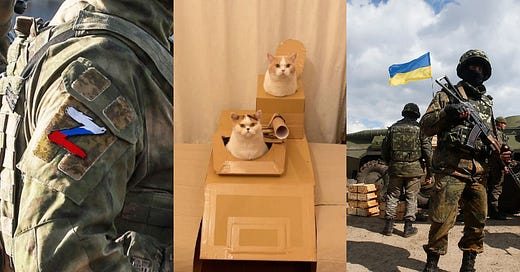



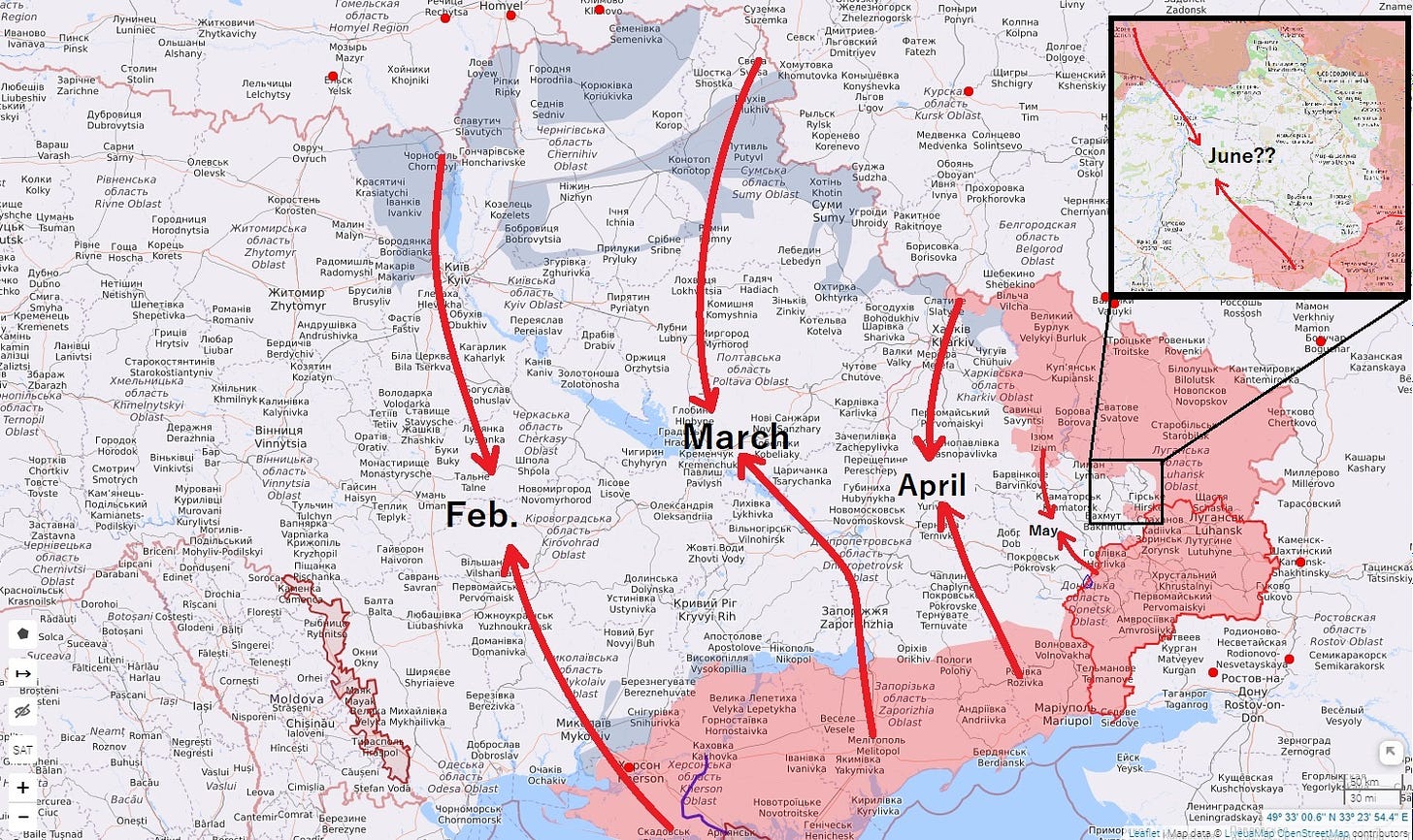

One of the best articles I have read on the Ukraine conflict - full of excellent points.
My own view is that Putin is in bed with the globalists - and that he was ordered to invade Ukraine to enable the globalist-controlled West to thereby have the excuse to impose the sanctions supposedly against Russia, but which are actually aimed to driving energy prices through the roof in the West, so as to destroy the West's economies and living standards, so as to create such conditions of desperation and fear that people will accept the totalitarian Great Reset as (they will be told) 'the only solution'.
Putin and his government have pursued all of the same 'Covid crisis' and Covid 'vaccines' scams operations as all Western governments, and share those governments' adoration of, and obedience to, the WHO Bill Gates / globalist power centre and nascent World Government.
Putin's global cabal bosses do not want Russian forces going any further into their Ukrainian power and money-laundering Ukrainian power centre - but they do need some Ukrainian 'victories' to boost flagging enthusiasm among European populations for freezing in their homes in order to save the corrupt government of Ukraine, one of the world's most corrupt countries.
And thus, we had the successful Ukrainian counter-attack. The globalist criminals want the war to go for ages yet - but they need to get Western populations enthusiastic for it again, as they huddle in their freezing homes this Winter, and pay obscene amounts for energy supplies.
if Putin was serious about taking these guys out he could've done it easily...the only assumption we can take from this is that Putin is just part of the great reset agenda...now go get your Sputnik booster and wait for your heart attack